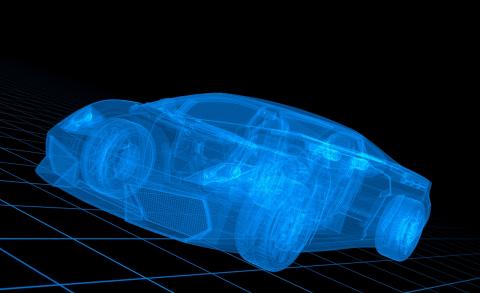Tech Companies are Changing the Auto Industry

As vehicles become more technologically advanced and the push for electric vehicles grows, it was only a matter of time before we started seeing tech companies enter the auto industry.
We’ve seen partnerships for years for things like software, infotainment systems, cybersecurity, and battery technology. But now, tech companies are releasing cars of their own. Obviously Tesla is the most well-known among them, but Lucid Motors has also gained some traction in the US. Overseas, China has several tech companies that are actively creating vehicles, like NIO, WM Motors and Xiaopeng Motors to name a few.
Some other big name tech companies are getting in the game. Samsung has dabbled in the car business for the past 20 years, selling its car-design and manufacturing company to Renault in 2000. While they have no intention of selling vehicles, they continue to create concept cars for Renault and build cars for themselves to test out tech.
Samsung’s biggest tech competitor, Apple, has bigger plans and started working “Project Titan” in 2014. Current projections on its release are 2024, but realistically, we probably won’t see anything until 2025 at the earliest. The length of this project seems ridiculous at first glance, until you realize that Apple is attempting to build a fully autonomous electric vehicle - one where you enter your destination and it just takes you there.
They’re also working on new battery technology that would make batteries both cheaper to make and more efficient. Most recently the tech giant has been in talks with Hyundai for the vehicle’s development. Sure some people who buy Apple everything are going to want to own the “iCar,” but will this pan out for the vast majority? There are some hurdles.
What prevents these tech companies from being truly competitive in the auto market?
1. The cost is too high. Most tech company vehicles are on the level of luxury brands. While a Tesla’s Model 3 standard range will run you about $33,000, this isn’t the case for most tech vehicles. Even a new Model 3 with the long-range capacity starts at $42k, which is the price of their used models as well. The Lucid Air starts at $70k. We don’t even want to know what the cost of an Apple 100% autonomous vehicle would cost. Over $100k probably. 200k? How many people can realistically afford a car at that price.
2. They don’t have brand loyalty. Consumers may always buy a Samsung TV or an Apple phone, but that same brand loyalty isn’t likely to convert to the automotive industry. Some families have been loyal to the same brand of vehicle for three generations or more. Many people will stay true to their brands. Some alaso have issues trusting “smart” vehicles.
3. Reliability is a problem.As with any new technology, there are hiccups.Tesla has seen numerous issues when scaling production -- everything from poor assembly (body panel gaps and unsatisfactory paint jobs) to bigger issues like unattached seatbelts and a glass roof flying off on the highway. Then there are the multiple recalls for safety issues. And this is just one brand.
Plus they keep changing their timelines. Tesla’s timelines have been pushed on multiple occasions. The Lucid Air was set to start delivering this spring, but now they’re looking at a Q3 release, citing Covid-19 as the cause of the delay. Wishy-washy timelines don’t help in building a positive reputation.
The way technology is changing the industry can’t be ignored. Consumers want more and more tech in their vehicles. Electric cars are more tech than they are car according to some. Many OEMs have invested millions and millions of dollars into developing technology, while others have partnered with tech companies instead. Google, for example, owns 80% of smartphone mirroring technology in vehicles worldwide. But some manufacturers, like Volkswagen, prefer to develop needed technology on their own.
No matter what approach they take OEMs and big tech are pretty much heading to the same result from two different directions. At some point, cars will be somewhere in the middle of what we think of as a car today and what tech is aiming for with its more-advanced vehicles. But at what point does it stop becoming a car and start being something else?






